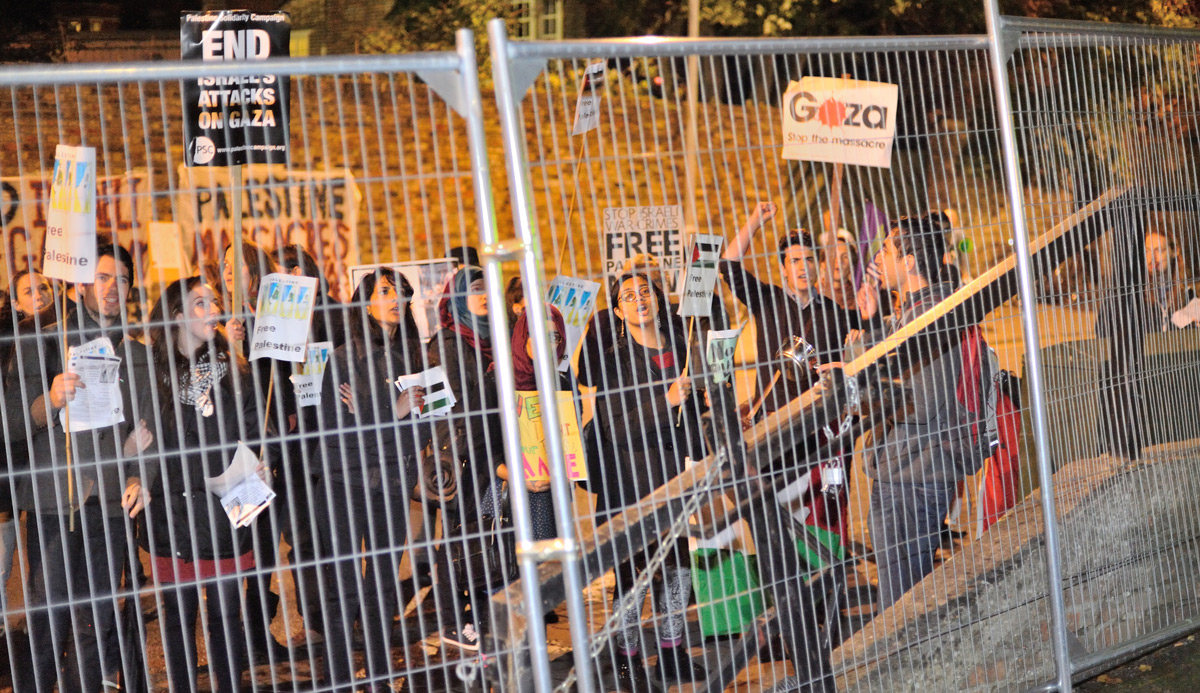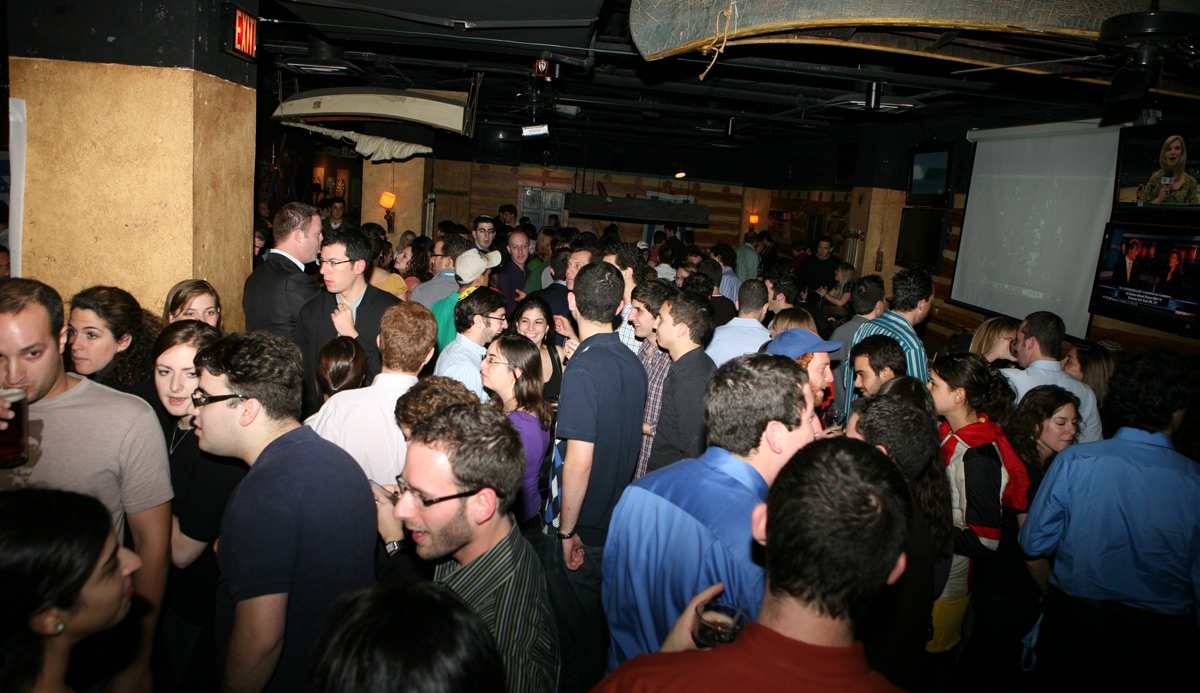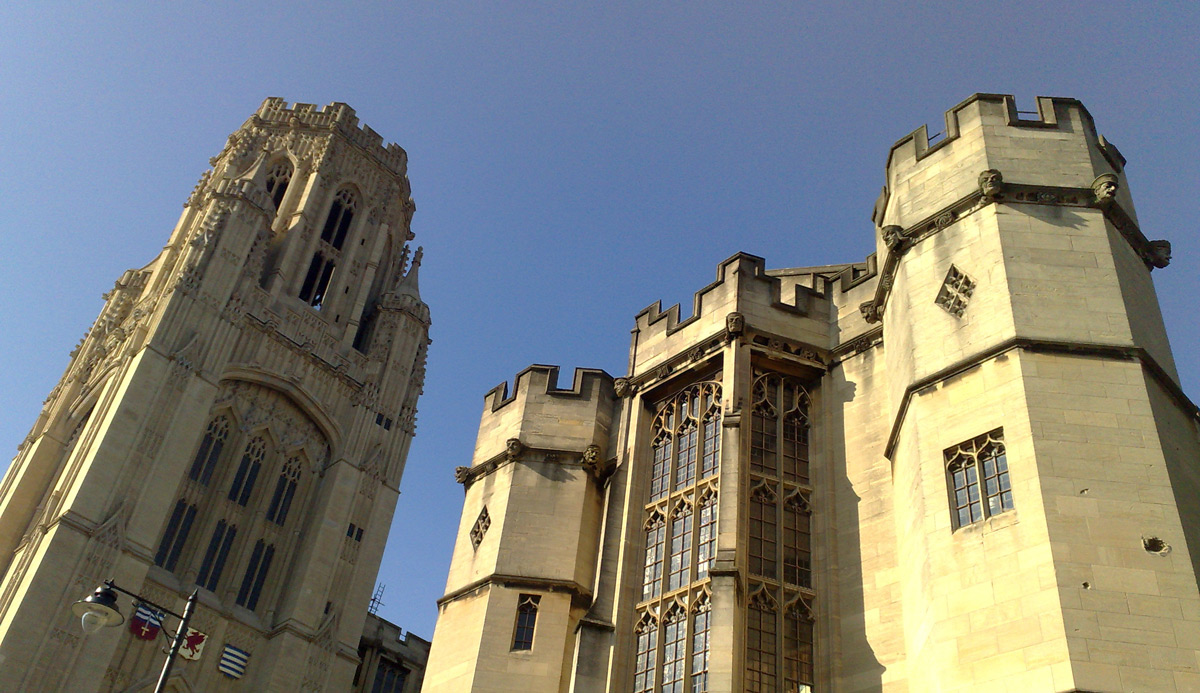In recent years, whenever I have had an opportunity to speak to an American audience concerned about anti-Israel activism and rising anti-Semitism, I point out that in these matters the U.S. is only a few years behind Britain and Europe. Look what is happening on the old continent, I say, and you can see your future. Reading Ruth Wisse’s important essay, “Anti-Semitism Goes to School,” is a reminder that the years change faster than my speeches—so much faster that I feel I can finally say, “Commiserations, America: you have caught up with us.”
It is fascinating how closely our situations resemble each other. Throughout my adult life I have spoken repeatedly on British campuses, and the patterns described by Wisse, though still shocking, are deeply familiar. I have been ushered out of back doors, had things thrown at me, and on one occasion—during an Israeli engagement in Gaza—asked not to come to a London campus because certain students were threatening violence against any visitor known to be pro-Israel.
In this respect, the subject of Israel on campus does indeed, as Wisse shows, constitute an issue apart. As in the U.S., British seats of learning have turned from being hothouses of ideas to places where students are meant to expect a “safe space.” Ideas unusual or discomfiting to them are designated as not just challenging or even dangerous but undesirable. At several of Britain’s leading universities, “trigger warnings” now appear at the head of articles in student newspapers, allowing the reader to avoid encountering any potentially upsetting issue or idea.
But again as in the U.S., there is of course one exception to this regime of curated and policed speech, and that is anything connected to Israel. On this subject the whole offensive geyser is munificently allowed to gush forth. If a student union were to organize, say, a debate on trans-sexuality, all of the speakers would exercise unimaginable care and sensitivity, and the audience would attend their words in respectful silence. Compare that with any debate on Israel.
A couple of months ago, Cambridge University’s student union held the latest round of its now annual debate on the proposition that “Israel is a rogue state.” Those speaking for the motion included the disgraced academic Norman Finkelstein, who lambasted the Jews for allegedly using the “Holocaust card” to their and Israel’s advantage—and an obscure blogger by the name of Ben White. Outside the academy both of these figures would be unknown. At the university they—like the blogger Max Blumenthal in the U.S.—were treated like rock stars. The crowd cheered and whooped as its favorites knocked down supposedly sacred cows in terms that any outside observer could see as offensive to the most elementary standards of academic integrity and decency.
The presence at such debates of so many hijab-covered girls and their male counterparts—rarely to be found when the subject of debate is, say, the EU—may account for some of this. But it does not account for all of it. In the academy, as in the wider society, the 10-10-80 formula holds. Perhaps 10 percent of students care for Israel. Perhaps 10 percent care for the Palestinians. The other 80 percent just want to go out to the nearest bar, pretend to be cleverer than they are, and watch soccer. It is tempting for either of the 10 percenters to spend all of their time warring on the other 10 percent, a war neither is likely to win. In recent years, however, the Palestinian lobby has intelligently decided to devote much of its effort to persuading the 80 percent that its cause is theirs.
In this endeavour, the pro-Palestinian (or these days, more accurately, the anti-Israel) lobby has some advantages. Many of the people who speak for it on UK campuses—notably, the now-unseated MP George Galloway—possess serious rhetorical firepower. By contrast, British pro-Israel voices, especially if they are Jewish communal leaders, tend to slip into the kind of disarray or demoralization that often presages defeat. At the recent Cambridge debate, Finkelstein and White confidently rehearsed for the crowd what they expected their opponents to say. One of the opponents was the head of the Board of Deputies of British Jews. Failing to deviate from his indeed predictable text, his performance duly elicited gusts of laughter from the entire audience.
In the UK, the figures who inhabit the pro-Israel side in debates like the one at Cambridge tend to fall into a couple of cripplingly sadly defensive groups. There are the communal leaders whose tired arguments are no match for their opponents. “Israel is a democracy,” they protest. “So what?” their adversaries reply; “it’s also a criminal state.” Then there are the pro-Israel “progressives” who talk up the subjects of gay rights and the easy availability in Israel of in-vitro fertilization (IVF). “So what?” again comes the reply; “you’re still oppressing the Palestinians.” It’s hardly surprising that people who do this too much, not to mention the few pro-Israel academics, rapidly succumb to exhaustion.
This, I would suggest, is not solely a result of too few troops being spread too thinly. It is a result of the opposition’s tireless vitriol and violence, and of the fact that the old arguments for Israel seem tired and the new arguments seem thin. A pro-Israel activist I spoke to in America who had just met her British counterpart said to me, memorably, “I’ve never met anyone so jaded or cynical.” The British girl must have been all of twenty-two.
America does not currently suffer a comparable dearth of talent on the pro-Israel side. But that time could come—which is why diagnosing the problem correctly must lead to a search for solutions. Ruth Wisse’s essay reminded me of a couple of truths. For years I have thought it a mistake to assume that the radicals arrayed against Israel constitute a vast movement. They may well become that, but they are not there yet. The organized anti-Israel movement in the UK—as I believe in America—is in fact remarkably small. There is a hub, certainly, but it is neither huge nor impossible to defeat. If we are to avert an even worse state of affairs than the present, the crucial thing is to prevent the 10 percent—or wherever you peg that figure—from further polluting the 80 percent, or wherever that figure is now. Demographic trends in American life suggest this could get difficult. A recent Pew survey found that by 2050, Jews in America will be outnumbered by Muslims. But the outcome relies not just on numbers of people who can turn up but on the sharpness, pointedness, and essential unyielding truth of the message being conveyed.
I am also reminded of how important it is to raise the bar of what pro-Israel figures think of as a “win.” Wisse refers to a couple of examples but we all know of a thousand more. Item: a panel of extremists is “balanced” by the inclusion of a left-wing, broadly pro-Israel figure who fervently attacks Netanyahu or explains at length his or her differences with the government of Israel before leaving the tiniest amount of time to mention that it is not a rogue state. Item: the conference—in fact, an anti-Israel rally—scheduled for the University of Southampton and canceled a month ago to rejoicing among Jewish and other groups even though the university canceled on grounds only of fears for health and safety. That is not only not a glorious victory, it is not really a victory at all, but at best a small breathing hole in the ice. Victory is persuading universities that rallies that spread lies have no place in publicly-funded institutions devoted to the pursuit of truth.
Winning the argument involves going heads-up against the hardest and knottiest parts of the issue. Success in stopping a whole new generation from being brought up on lies involves individuals and groups relentlessly turning the anti-Israel movement around like a carriage-clock, opening up its back and displaying its wretched workings for all the world to see.
More about: Anti-Semitism, Anti-Zionism, BDS, Israel & Zionism, Politics & Current Affairs







